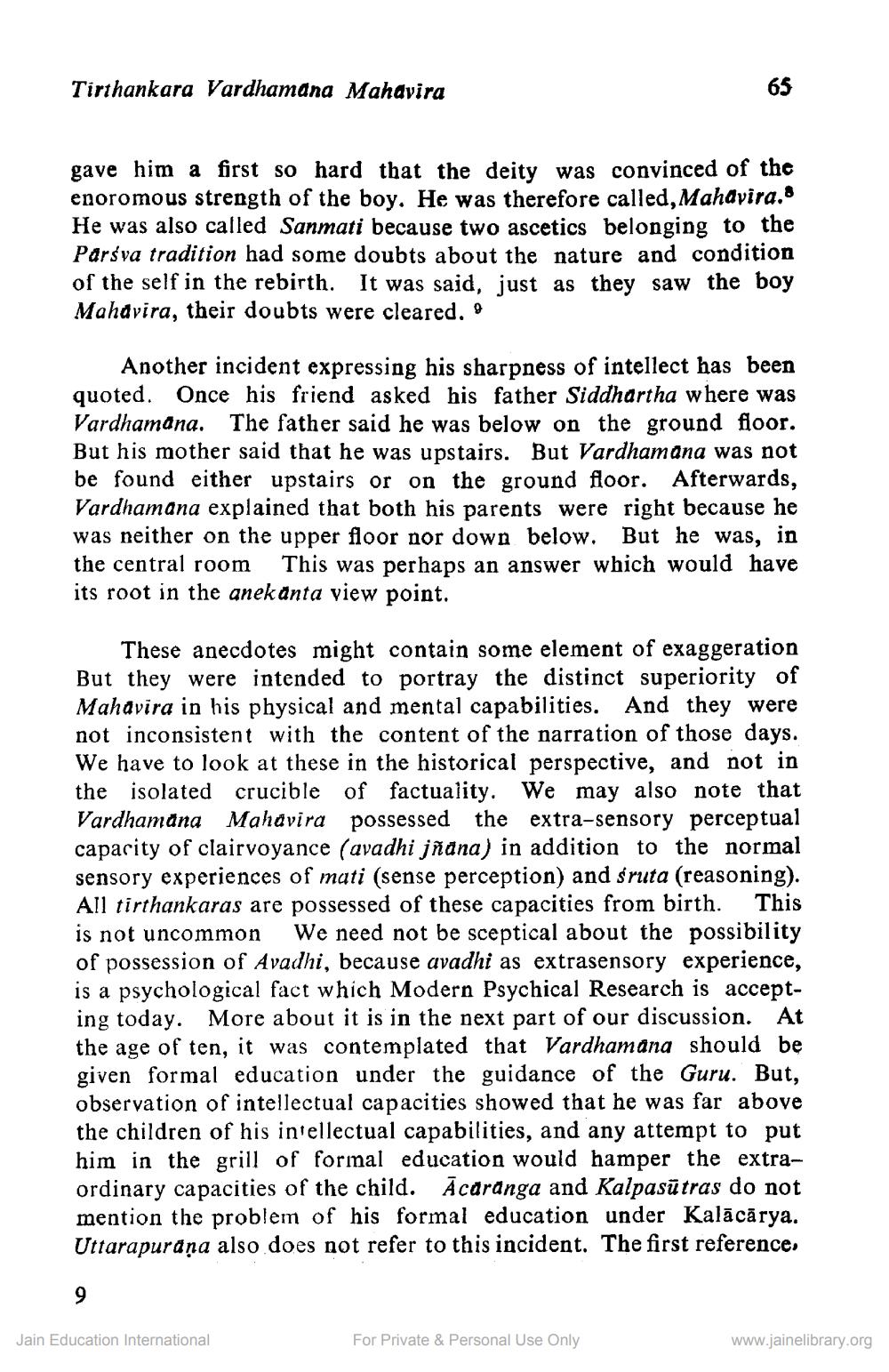________________
Tirthankara Vardhamana Mahavira
65
gave him a first so hard that the deity was convinced of the enoromous strength of the boy. He was therefore called, Mahavira. He was also called Sanmati because two ascetics belonging to the Parsva tradition had some doubts about the nature and condition of the self in the rebirth. It was said, just as they saw the boy Mahavira, their doubts were cleared.)
Another incident expressing his sharpness of intellect has been quoted. Once his friend asked his father Siddhartha where was Vardhamana. The father said he was below on the ground floor. But his mother said that he was upstairs. But Vardhamana was not be found either upstairs or on the ground floor. Afterwards, Vardhamana explained that both his parents were right because he was neither on the upper floor nor down below. But he was, in the central room This was perhaps an answer which would have its root in the anekanta view point.
These anecdotes might contain some element of exaggeration But they were intended to portray the distinct superiority of Mahavira in his physical and mental capabilities. And they were not inconsistent with the content of the narration of those days. We have to look at these in the historical perspective, and not in the isolated crucible of factuality. We may also note that Vardhamana Mahavira possessed the extra-sensory perceptual capacity of clairvoyance (avadhi jñana) in addition to the normal sensory experiences of mati (sense perception) and s ruta (reasoning). All tirthankaras are possessed of these capacities from birth. This is not uncommon We need not be sceptical about the possibility of possession of Avadhi, because avadhi as extrasensory experience, is a psychological fact which Modern Psychical Research is accepting today. More about it is in the next part of our discussion. At the age of ten, it was contemplated that Vardhamana should be given formal education under the guidance of the Guru. But, observation of intellectual capacities showed that he was far above the children of his intellectual capabilities, and any attempt to put him in the grill of formal education would hamper the extraordinary capacities of the child. Acaranga and Kalpasūtras do not mention the problem of his formal education under Kalācārya. Uttarapurana also does not refer to this incident. The first reference,
Jain Education International
For Private & Personal Use Only
www.jainelibrary.org




